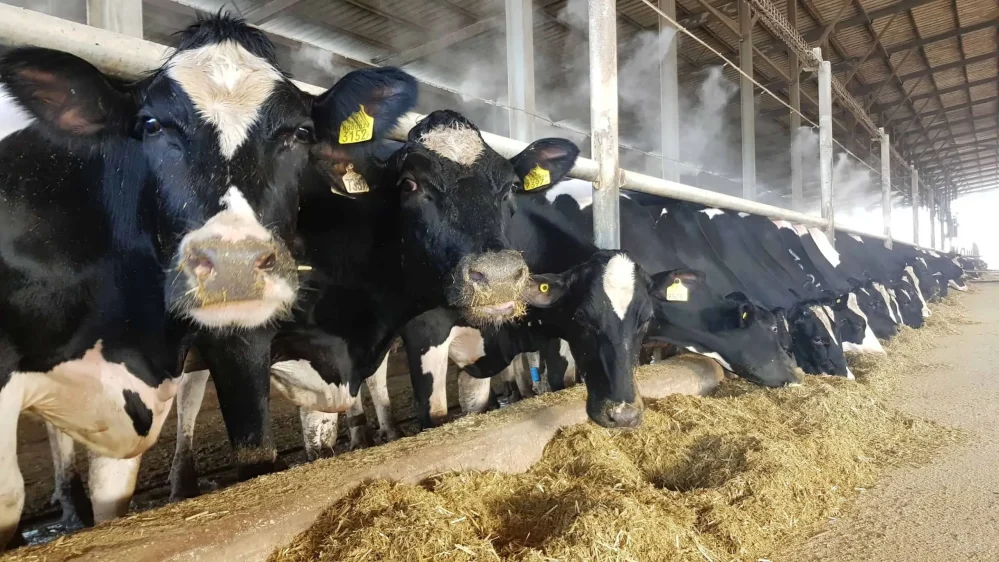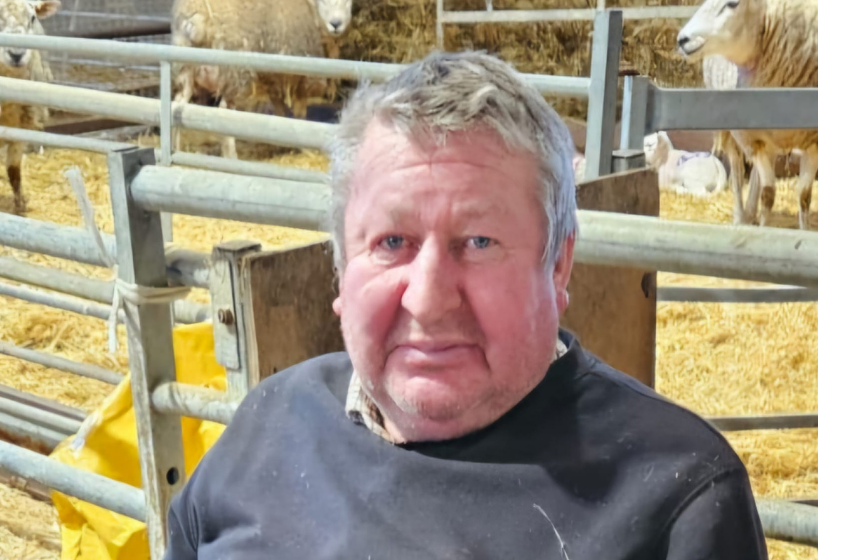Farming
Farmers should prepare for IHT changes

There are less than six months before the Spring Statement, and changes to the IHT format – based on recommendations originally outlined by the Office of Tax Simplification (OTS) in July 2019 – are likely. “The recommendations were primarily geared towards streamlining IHT administration but may have the secondary effect of reducing some of the favourable reliefs available to farmers,” explains Catherine Vickery, associate director at Old Mill.
“Current IHT legislation can be very beneficial for farmers, giving confidence that they can pass down agricultural business and property assets to the next generation tax free on death,” she adds. “Unfortunately, the coronavirus pandemic has left the Government with a very large debt, so there’s potential that it will implement any OTS recommendations to increase tax revenue.”
So, with the Spring Statement anticipated for March, what can farmers do to mitigate any potential changes?
“Under the existing rules, agricultural land and property qualify for Agricultural Property Relief (APR) from IHT at up to 100%,” explains Mrs Vickery. Other land and property assets, like diversified enterprises, can qualify for up to 100% Business Property Relief (BPR) as part of an overall farming business which is at least 50% trading. “These reliefs can apply on lifetime transfers as well as on death where the conditions are met.”
Transfers on death currently also qualify for Capital Gains Tax (CGT) free uplift so that gains are effectively washed out. Lifetime transfers of agricultural land, property, and businesses which are at least 80% trading qualify for gift holdover relief, meaning gains can be deferred until a later disposal.
However, a key OTS recommendation is to remove the CGT free uplift on death when IHT relief is also available. This would mean that the next generation would inherit the farm at an historically low base cost, leading to higher CGT on any future sale.
“The most tax efficient option has often been for farmers to continue to actively farm and hold onto assets until they die,” says Mrs Vickery. “Now, given speculation about potential changes, the best course of action is to get a succession plan in place as soon as possible and start implementing it.
“Plans need to be arranged based on what is right for you, your family and the farm right now, rather than how things might stand at a later date.”
This means establishing who is taking on the assets and if they have the skills needed to drive the business forward. “Pass over this responsibility while you still can and while you can be on hand to guide and support your successor,” advises Mrs Vickery.
It’s also important to review partnership or shareholder agreements, and consider the handing on of other assets. Additionally, farmers should collate any trust and gift deeds, so that paperwork is on hand to be reviewed.
“Though we suspect the new IHT rules won’t be favourable, farmers need to make use of the rules we have now as these are a current certainty,” says Mrs Vickery. “Succession planning is so easy to put off but it’s a vital tool in safeguarding the future of farming businesses.”
Farming
Farm building scheme near Lawrenny given go-ahead by planners

AN APPLICATION for a storage building at a south Pembrokeshire farm, made by a family member of an officer on Pembrokeshire County Council’s planning service, has been given the go-ahead by the authority’s planning committee.
In an application recommended for approval at the July 23 meeting of the authority’s planning committee, Laura Elliot sought permission for the erection of an agricultural storage building at Tedion Farm, a dairy farm near Lawrenny.
The application had been brought to committee, rather than being delegated to planning officers, due to the family connection.
The farm, near to the Pembrokeshire coast National Park border, comprises 270 milking cows and dairy heifer replacements kept on the farm comprising land over 138 hectares. The farm is mainly down to grass and the cows are paddock grazed in order to utilise grass efficiency.
No objections had been received from local community council Martletwy.
A report for members said: “The application seeks consent for the erection of agricultural storage building. The erection of an agricultural building will be used to store stay, hay and farm machinery.
“The building would be located within the existing farm complex, to the north-east of the site, adjacent to the main farm dwelling. The building will measure 18 metres in length by 13.6 metres in width, with a pitched roof height of 5.71 metres.”
Approval was moved by Cllr Alistair Cameron, seconded by Cllr Brian Hall.
Farming
Fears dairy farm near Kilgetty could increase to 3,000 cattle

PEMBROKESHIRE planners are to visit the site of one of the county’s largest dairy farms after claims were raised a scheme for new calf buildings could lead to animal welfare issues and an increase in the size of the herd to 3,000 cattle.
At the July 23 meeting of the council’s planning committee, an application by Hugh James of Langdon Mill Farms Ltd for a calf building, weaned calf building, and associated yard areas, at Langdon Mill Farm, near Jeffreyston, Kilgetty was recommended for conditional approval.
Local community council Jeffreyston has raised concerns, made by a member of the public, on potential increased noise and odour from the scheme, planners heard.
A supporting statement, through agent Reading Agricultural Consultants, said: “The holding currently has a milking herd of approximately 2,000 cows, which are housed indoors for the majority of the year, with dry cows [cows that are not lactating, prior to calving] and heifers grazed outdoors when weather and soil conditions permit.
“There has been significant investment in buildings and infrastructure at the farm over the last decade in respect of cattle accommodation, slurry storage, milking facilities, Anaerobic Digestion (AD) plant and feed storage. The unit is efficient, achieving yields of more than 10,000 litres/cow/year, with cows being milked three times/day in the 60-point rotary parlour.”
Currently, calves are reared at Langdon Mill Farm for two months before being transported off-site to be reared at a number of third-party farms in the area before being return later; the proposed 61.2m long calf building is required to accommodate young-stock, following separation from the cows, to two-months, with the 164.8m weaned calf building to be used for calves from two months to seven months.
The application says the proposals would “clearly make the enterprise more financially robust by reducing reliance on third party farms”.
However, concerns were raised at the committee meeting by objector Ian Dennis, a former vet of some four decades’ experience, who described Langdon as occupying 3,000 acres of land with 2,000 cattle currently that “are never allowed to graze,” the proposal, he said, would add another 1,000 cattle to the site.
“This is factory farming, an intensive livestock unit, no longer a farm.”
He told planners a “mendacious and incorrect” ammonia emission report submitted by the applicants was “designed to bamboozle,” saying, despite his experience and scientific background, he needed expert support to assess.
He said only average figures were reported, rather than peaks and troughs, adding the “fictitious anaerobic digestion plant” had yet to be built, with planning permission now lapsed.
However, officers told members the applicant’s agent had said works on the digestor had actually started.
On the issue of animal welfare, Mr Dennis said he had “very huge concerns” about the scale of the development, differing from a planning officer report saying the scheme would bring animal welfare benefits.
A suggestion by committee chair Cllr Simon Hancock the application be deferred pending a site visit was unanimously backed by committee members present.
Farming
Family pay tribute to farmer, 65, who died in quadbike accident

A WEST WALES farmer has died after an incident involving a quadbike.
Dyfed-Powys Police have confirmed they attended a report of an incident involving an agricultural quadbike in a field in the Llanilar area of Aberystwyth on July 17.
The force has confirmed that a 65-year-old man died at the scene.
They said that his next of kin have been advised and are being supported by specialist officers. The HM Coroner and Health and Safety Executives have been informed.
His family have paid tribute to him. The family said: “Hugh Tudor was a 65 year old farmer who had farmed at Tynberllan, Llanilar with his wife Ann for over 40 years. He was a devoted father to Sara, Lowri and the late Gwenno.
“Hugh was the son of the late Tom and Sybil Tudor of Glanystwyth and brother to Richard.
“Farming was his life, but he also had a wide range of interests and was actively involved in all aspects of the local community in Llanilar and beyond.
“We would like to thank everybody for their support and kindness during this difficult time.”
-

 Education5 days ago
Education5 days agoMilford Tesco worker achieves Oxford dream and lands top legal job
-

 Crime4 days ago
Crime4 days agoHaverfordwest man admits having nearly 1000 child and animal images
-

 Crime4 days ago
Crime4 days agoYouth set to appear in court over serious sexual offences
-

 Crime4 days ago
Crime4 days agoPolice investigating after man injured during altercation in cemetery
-

 Education4 days ago
Education4 days agoPupils delight in ice cream treat from Pembrokeshire’s number one van
-

 Crime4 days ago
Crime4 days agoTown centre ‘stinking of skunk’ as police strip cannabis farm
-

 Crime3 days ago
Crime3 days agoFag-butt police court summonses spark debate in Pembrokeshire
-

 News6 days ago
News6 days agoProposal to give firefighters a council tax discount to go to Cabinet





























